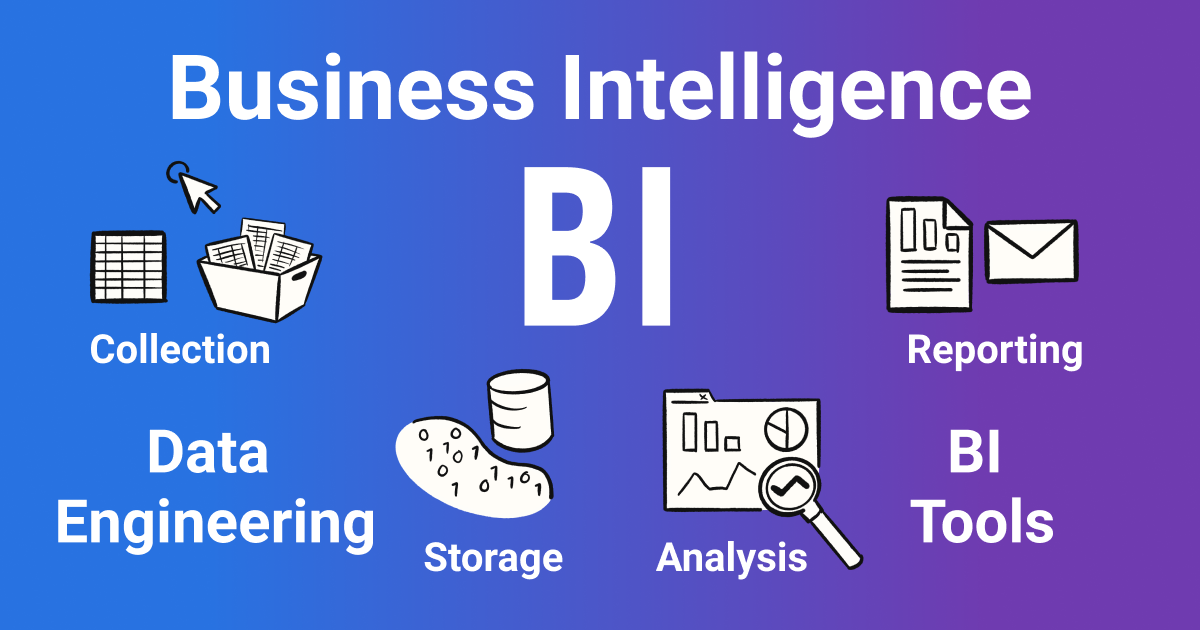In today’s fast-paced and competitive business environment, organizations are constantly seeking ways to streamline their operations, improve decision-making, and gain a competitive edge. One key aspect that has become essential for businesses to achieve these goals is business intelligence (BI) reporting tools. These tools enable companies to analyze and visualize data, providing insights that inform strategic decisions and drive growth. In this article, we will delve into the world of business intelligence reporting tools, exploring their benefits, features, and applications.

What are Business Intelligence Reporting Tools?
Business intelligence reporting tools are software applications designed to collect, analyze, and visualize data from various sources, providing users with a comprehensive view of their organization’s performance. These tools help businesses to identify trends, patterns, and correlations within their data, making it easier to make informed decisions. BI reporting tools can handle large volumes of data, including transactional, operational, and customer data, and present it in a user-friendly format, such as reports, dashboards, and charts.
Benefits of Business Intelligence Reporting Tools
The benefits of using business intelligence reporting tools are numerous and significant. Some of the most notable advantages include:
- Improved Decision-Making: BI reporting tools provide users with accurate and up-to-date information, enabling them to make informed decisions that drive business growth.
- Enhanced Data Analysis: These tools offer advanced analytics capabilities, allowing users to analyze complex data sets and identify trends and patterns that may not be visible through traditional reporting methods.
- Increased Efficiency: BI reporting tools automate many reporting tasks, freeing up staff to focus on higher-value activities, such as data analysis and strategic planning.
- Better Customer Insights: By analyzing customer data, businesses can gain a deeper understanding of their target audience, enabling them to develop more effective marketing campaigns and improve customer satisfaction.
- Competitive Advantage: Companies that utilize BI reporting tools are better equipped to respond to changing market conditions and stay ahead of the competition.
Features of Business Intelligence Reporting Tools
Business intelligence reporting tools typically offer a range of features that enable users to collect, analyze, and visualize data. Some of the most common features include:
- Data Connectivity: The ability to connect to various data sources, including databases, spreadsheets, and cloud-based applications.
- Data Visualization: The ability to present data in a variety of formats, such as charts, graphs, and tables.
- Reporting: The ability to create and distribute reports to stakeholders, either on a scheduled basis or on-demand.
- Dashboards: The ability to create customized dashboards that provide a real-time view of key performance indicators (KPIs) and other critical metrics.
- Advanced Analytics: The ability to perform advanced analytics, such as predictive analytics, data mining, and statistical analysis.
Applications of Business Intelligence Reporting Tools
Business intelligence reporting tools have a wide range of applications across various industries and departments. Some of the most common applications include:
- Financial Reporting: BI reporting tools are often used to create financial reports, such as balance sheets, income statements, and cash flow statements.
- Sales and Marketing: These tools are used to analyze customer data, track sales performance, and measure the effectiveness of marketing campaigns.
- Operational Reporting: BI reporting tools are used to monitor and analyze operational metrics, such as production levels, inventory levels, and supply chain performance.
- Human Resources: These tools are used to analyze employee data, track employee performance, and measure the effectiveness of training programs.
Popular Business Intelligence Reporting Tools
There are many business intelligence reporting tools available on the market, each with its own strengths and weaknesses. Some of the most popular BI reporting tools include:
- Tableau: A data visualization tool that enables users to connect to various data sources and create interactive dashboards.
- Power BI: A business analytics service by Microsoft that allows users to create interactive visualizations and business intelligence reports.
- QlikView: A business intelligence platform that enables users to create interactive dashboards and reports.
- SAP BusinessObjects: A business intelligence platform that provides a range of reporting and analytics tools.
FAQs
- What is the difference between business intelligence and business analytics?
Business intelligence refers to the process of collecting, analyzing, and presenting data to inform business decisions. Business analytics, on the other hand, refers to the use of advanced statistical and mathematical techniques to analyze data and drive business outcomes. - What are the benefits of using cloud-based business intelligence reporting tools?
Cloud-based BI reporting tools offer a range of benefits, including reduced costs, increased scalability, and improved collaboration. - How do I choose the right business intelligence reporting tool for my organization?
When choosing a BI reporting tool, consider factors such as data connectivity, data visualization, reporting, and advanced analytics capabilities. It’s also important to evaluate the tool’s ease of use, scalability, and support. - Can business intelligence reporting tools be used by small businesses?
Yes, business intelligence reporting tools can be used by small businesses. Many cloud-based BI reporting tools offer affordable pricing plans and are designed to be user-friendly, making them accessible to small businesses.
Conclusion
Business intelligence reporting tools have become an essential component of modern business, enabling organizations to make informed decisions, drive growth, and gain a competitive edge. These tools offer a range of features, including data connectivity, data visualization, reporting, and advanced analytics, and have a wide range of applications across various industries and departments. By choosing the right BI reporting tool and leveraging its capabilities, businesses can unlock the full potential of their data and achieve their strategic goals. Whether you’re a large enterprise or a small business, business intelligence reporting tools can help you to streamline your operations, improve decision-making, and drive success.
Closure
Thus, we hope this article has provided valuable insights into The Importance of Business Intelligence Reporting Tools in Modern Business. We appreciate your attention to our article. See you in our next article!